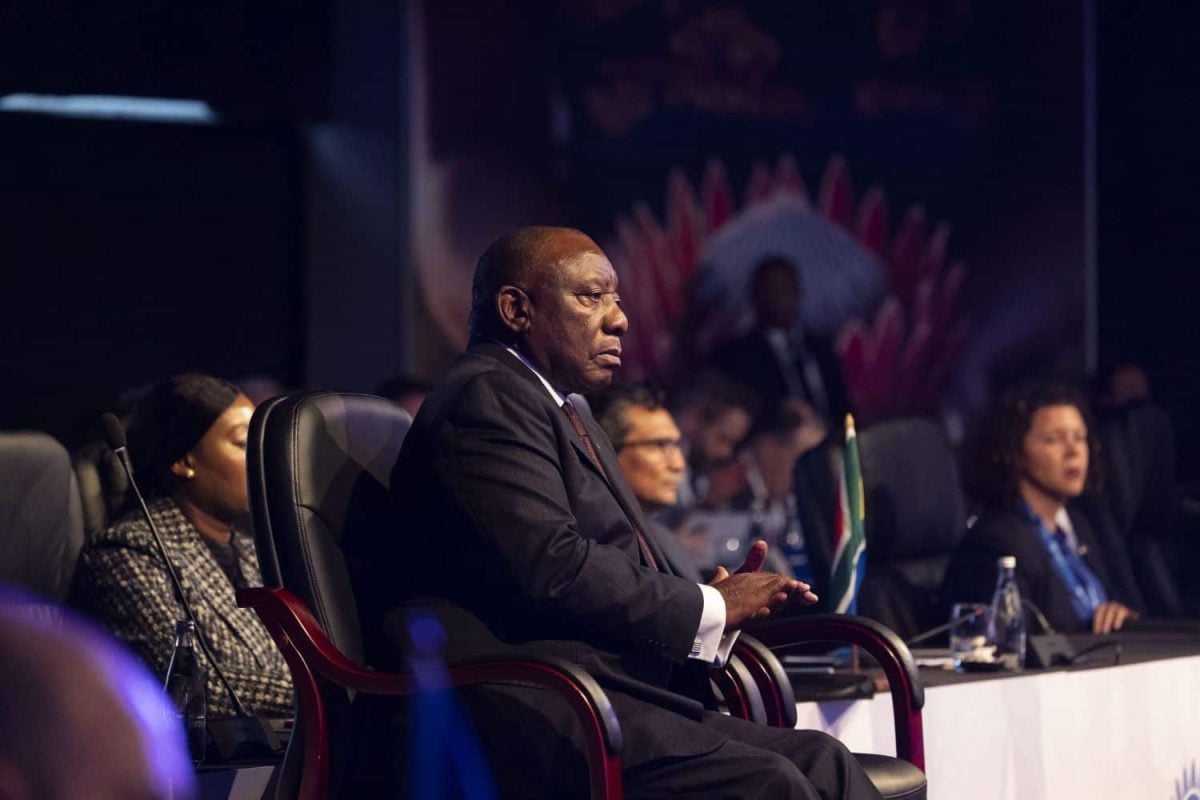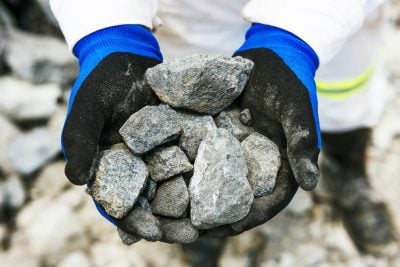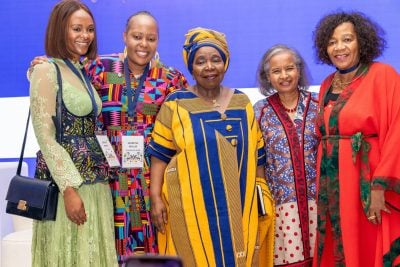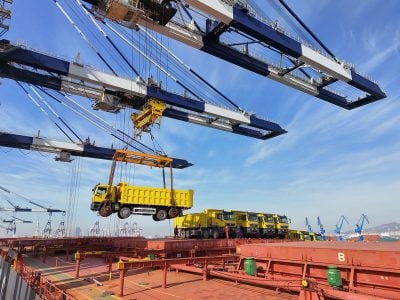As delegates gather in Johannesburg later this month for the G20 Summit, the pressing question for Africa is whether its leaders will seize the moment to embed African priorities into global decision-making. The African Union (AU) joined the G20 as the 21st member at the 2023 summit in India and was officially represented at the 2024 summit in Brazil. With this year’s summit taking place on African soil for the first time, expectations are building that Africa finally has a chance to negotiate for a fairer deal on critical issues like debt relief, climate finance and inclusive growth.
South Africa’s G20 presidency is advancing an ambitious agenda aimed at tackling some of the continent’s most entrenched economic challenges. Key elements of its agenda include strengthening disaster resilience through faster response and reconstruction, advancing debt sustainability for low-income countries, lowering borrowing costs for African sovereigns, and unlocking climate finance for a just energy transition. South Africa is also championing the strategic use of Africa’s vast critical minerals reserves—including lithium, cobalt, and rare earths—as catalysts for industrialisation and job creation. The aim is to accelerate the continent’s transition from raw material exporter to value-added producer.
On issues such as global financial reform, there is broad support for the measures proposed by South Africa from countries in the “global south”. A case in point is the proposed “Cost of Capital Commission”, a flagship proposal that has been warmly received by many developing nations reeling under the weight of costly debt. If formally established, the commission will produce a comprehensive expert review of the factors driving up the cost of capital for developing economies. It will also recommend reforms that could expand fiscal space and improve debt sustainability. Some ideas that are already gaining ground include proposed amendments to credit rating methodologies, prudential regulations, and the data sets used by credit analysts.
“Within the G20, South Africa would likely find support from critical members, including Brazil, India, and Indonesia, given the priority these governments placed on these issues during their previous G20 presidencies. It also would find support within the African Union, which now has a permanent seat at the G20 table and could play a critical bridging role between G7 and BRICS members of the grouping,” says David McNair, executive director at The ONE Campaign.
The cost of facing up to the US
However, on other issues such as climate change and inclusive growth, there are fears that progress may be slower than hoped given the US’s hostile stance on these matters. Under President Donald Trump, Washington has withdrawn support for climate financing and other initiatives it lambasts as “woke”, including efforts to promote gender equity and address wealth inequality.
This has, however, not stopped South Africa from vigorously advocating on these issues. During his speech at the G20 finance ministers’ meeting in February, South Africa’s President Cyril Ramaphosa argued that closing the large inequality gap between developing and developed countries would create a more prosperous world.
“As the G20 we need deliberate and coordinated efforts to focus on inclusive growth based on responsive trade and investment to grow the incomes of the poor nations and poorest in society and this we should do in our own selfish interests,” Ramaphosa said.
Marco Rubio, the US Secretary of State, has nonetheless dismissed South Africa’s agenda as being “anti-American” and criticised the summit’s theme ‘solidarity, equality & sustainability” for being a poorly camouflaged rendition of ‘diversity, equity and inclusion (DEI)’, which the Trump administration has railed against.
“South Africa is doing very bad things… Using G20 to promote ‘solidarity, equality, & sustainability’. In other words: DEI and climate change.” he posted on X (formerly Twitter) in February.
Relations between the US and South Africa have deteriorated under Trump, who in August imposed a 30% tariff on South African exports, the highest for an African country. This move has dealt a heavy blow to key sectors like agriculture, mining, manufacturing and logistics. The US has also frozen aid to South Africa, in addition to other hostile measures. Analysts are now questioning how South Africa can drive its agenda forward at the G20 without the support of high-level US representatives, who have pledged not to attend certain meetings.
Focus on what’s attainable
Elizabeth Sidiropoulos, chief executive of the South African Institute of International Affairs (SAIIA), believes that South Africa must focus on what the forum can achieve without the US. She says there are areas where progress can be made, and areas where the US absence will be much more keenly felt.
“Certain reforms to the IMF and World Bank, where the US has veto power, and also the World Trade Organization trade dispute settlement system, are areas where we can’t expect progress at the moment,” she says.
Some experts have argued that South Africa’s strong ties to powers like China and Russia could help balance outcomes and shore up support for some of its proposals. Its founder role in the expanded BRICS grouping, which now includes Egypt, Ethiopia, UAE and Iran, has also been highlighted as a potential diplomatic strength. Still, without US support, consensus and progress on key issues is likely to remain elusive.
“It is important to recognise how crucial the US is to the world economy – that is going to complicate any response,” says Menzi Ndhlovu, senior country risk analyst at the Signal Risk consultancy in Johannesburg “As much as Global South countries are plotting in the background, they are also trying to appease Trump as much as possible. It is a very, very fine balance.”
G20’s changing focus
For Sidiropoulos, the AU’s ascension to the G20 and South Africa’s current presidency is a broader sign of the G20’s changing focus. The summit is no longer just about finance, but about development and the reforms needed to accelerate it in the global south, a region that accounts for 88% of the world’s population.
“Finance has been at the heart of the G20 since it was only a finance ministers’ meeting. However, over the years, it has become clear that finance, without a focus on developmental outcomes, will not provide the necessary societal results” she argues.
“The G20 Global South presidencies have tried to refocus the group in that direction. South Africa’s presidency has also aimed to ensure strong outcomes for key African priorities. In the current geopolitical uncertainty, not least concerning whether the G20 itself can remain relevant, South Africa’s agenda has attempted to tackle some of the most pressing global issues, which disproportionately affect Africa, “ she says.

 Sign in with Google
Sign in with Google 



